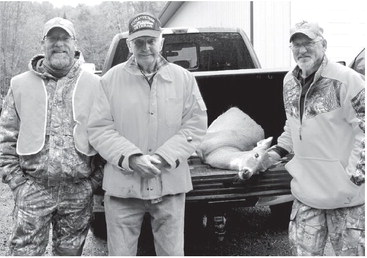Vets get their bucks in first Bear Crossings disabled hunt


Organizers aim for more hunters in next year’s event
Gray skies, cool temperatures and an all-day rain couldn’t stop three hunters from baggi...


Organizers aim for more hunters in next year’s event
Gray skies, cool temperatures and an all-day rain couldn’t stop three hunters from baggi...